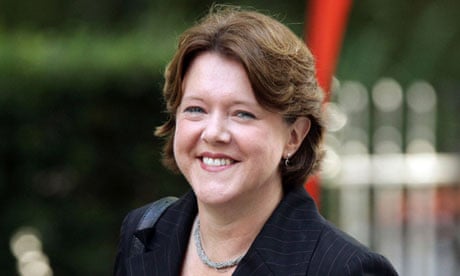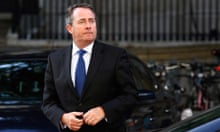A bill to legalise gay marriage is being published by the government on Friday.
The legislation is likely to provoke strong debate in the House of Commons, where a significant number of Conservative MPs are opposed to same-sex marriage.
But the culture secretary, Maria Miller, insisted it would ensure "equal and fair" treatment of gay couples, while providing adequate protection for religious institutions that do not want same-sex weddings to take place on their premises.
Miller told BBC Radio 4's Today programme: "We feel that marriage is a good thing and we should be supporting more couples to marry and that is exactly what the proposals being brought forward today do.
"But it is about making sure that not only do we recognise the rights of same-sex couples in civil life, but we also recognise that some churches won't want to participate in same-sex marriages. We are trying to make sure that there are the protections there for churches who feel that this isn't appropriate for their particular beliefs. We know that there are churches who do want to take part in same-sex marriages, so we have made sure that there are provisions there so they can."
The legislation sparked controversy after it emerged that a "quadruple lock", designed to protect religious institutions from being forced to conduct gay marriages against their wishes, would make it illegal for such ceremonies to be conducted by the Church of England and Church in Wales.
Miller said: "At the end of the process, there will be the same freedoms there for the Church of England and Church in Wales, but they have to be achieved differently, because the Church of England and Church in Wales have a common-law duty to marry people, and that is quite different from any other religious institution in the country. Therefore you would expect there would have to be slightly different provisions there."
She added: "I don't think it is for any government to tell the Church of England what they do when it comes to something which is so central to religious belief."
Miller rejected claims that teachers could face disciplinary action if they refuse to "promote" gay marriage in schools.
"Teachers are able to, and entitled to, express their views about same-sex marriage and there is no requirement at all for them to promote it," she said. "But obviously we wouldn't expect teachers to be offensive or discriminate in any way about anything."
Miller added: "Of absolutely paramount importance to me is that when it comes to civil society, we should be treating people equally and fairly and the measures we are putting forward today are doing that."
MPs will have their first chance to vote on the proposals when the marriage (same-sex couples) bill has its second reading in the Commons on 5 February.
David Cameron has given Conservative MPs a free vote on the bill.





Comments (…)
Sign in or create your Guardian account to join the discussion